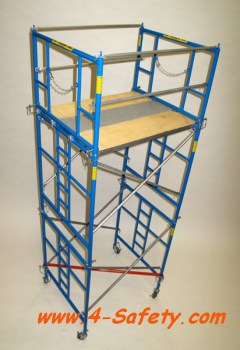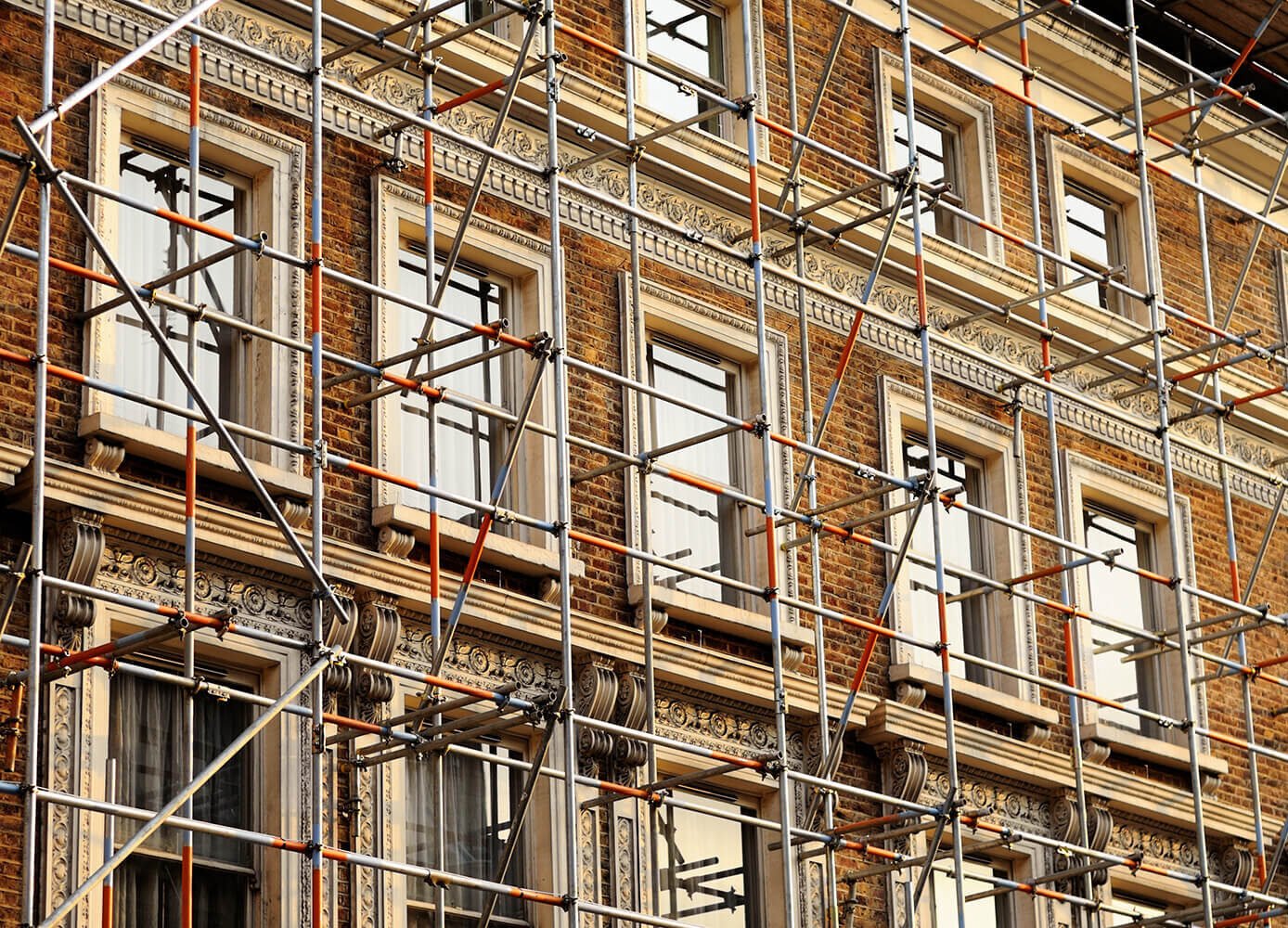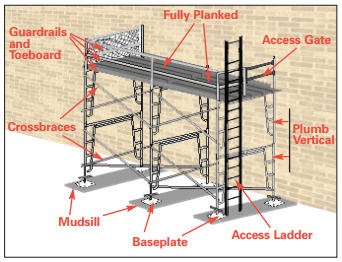Secure and Efficient Scaffolding in Surrey for Any Construction Task
Secure and Efficient Scaffolding in Surrey for Any Construction Task
Blog Article
Discovering the Various Kinds Of Scaffolding Utilized in Building Projects
The building and construction sector counts greatly on various types of scaffolding to satisfy details project needs, each offering distinctive advantages and applications. Conventional frame scaffolding gives a tough foundation for general jobs, while put on hold scaffolding is crucial for work on skyscraper structures.

Conventional Structure Scaffolding
Typical structure scaffolding is one of one of the most extensively used methods in the building and construction sector as a result of its toughness and flexibility. This system is composed of upright and horizontal structures that are set up to create a steady platform for products and employees. The primary components consist of vertical posts, horizontal ledgers, and angled braces, which with each other offer a strong structure that can sustain significant loads.
Among the vital benefits of typical framework scaffolding is its versatility to various building and construction projects, ranging from domestic structures to huge commercial structures. The modular design permits for simple setting up and disassembly, making it reliable for both lasting and temporary tasks. In addition, the system can be personalized in height and width, fitting different structure styles and website problems.
Safety and security is vital in scaffolding applications, and typical structure systems are outfitted with guardrails and toe boards to avoid falls and make sure worker protection. Regular inspections and adherence to security policies are crucial in keeping the integrity of the scaffold (Scaffolding). Generally, standard framework scaffolding remains an essential choice in the construction industry, offering a reputable platform for labor and boosting total task effectiveness

Suspended Scaffolding
Suspended scaffolding uses a distinct remedy for construction tasks that require accessibility to elevated surfaces, especially in circumstances where traditional framework scaffolding might be impractical. This kind of scaffolding is commonly suspended from the roofing or top levels of a framework, making use of a system of systems, sheaves, and ropes to create a working area that can be readjusted to different elevations.
Among the key benefits of put on hold scaffolding is its adaptability. It can be conveniently repositioned or reduced to suit adjustments in construction needs, making it suitable for tasks such as window setup, frontage job, and upkeep on skyscrapers. In addition, the marginal impact of put on hold scaffolding permits for better usage of ground area in city atmospheres, where room is frequently limited.
Security is an essential factor to consider in making use of put on hold scaffolding. Appropriate rigging and anchoring systems have to be used to make certain security and avoid mishaps. Operators needs to likewise be trained in the risk-free usage of this tools. On the whole, put on hold scaffolding supplies a efficient and efficient remedy for accessing hard-to-reach locations in different construction situations, improving both productivity scaffolder logo and safety on site.
System Scaffolding
System scaffolding, often concerned as a modern option in the scaffolding market, contains pre-engineered elements that can be swiftly put together and adjusted for various building and construction projects. Scaffolding. This type of scaffolding is identified by its modular design, which enables convenience and effectiveness on job sites, fitting architectural requirements and various heights
Typically made from high-strength steel or light weight aluminum, system scaffolding uses boosted sturdiness and stability. The elements consist of upright messages, straight ledgers, and diagonal braces, which adjoin firmly, ensuring a durable structure. The layout typically incorporates standard installations, streamlining assembly and disassembly processes, thereby reducing labor time and expenses.

Rolling Scaffolding
Rolling scaffolding is a versatile alternative to traditional set scaffolding, made for mobility and ease of use on building and construction websites. This kind of scaffolding includes a platform sustained by frames with wheels, allowing workers to conveniently relocate visite site it as needed. The wheelchair attribute substantially boosts performance, as it lessens downtime related to dismantling and putting together fixed scaffolding.
Normally constructed from light-weight materials such as light weight aluminum or steel, rolling scaffolding offers a durable yet portable service for jobs requiring frequent repositioning - Scaffolding. It is particularly beneficial in jobs such as painting, drywall setup, and electrical work, where access to different elevations and places is necessary
Safety and security is paramount in rolling scaffolding layout, with attributes such as locking wheels to stop unplanned motion when in usage, and guardrails to secure workers from falls. Furthermore, numerous designs are flexible in height, accommodating numerous project needs.
Cantilever Scaffolding

The design of cantilever scaffolding normally entails making use of arms or braces anchored to a structure or structure, enabling the platform to expand exterior securely. Safety and security is critical; hence, these scaffolds have to be engineered to withstand numerous tons and ecological conditions. Normal examination and maintenance are necessary to guarantee structural stability and employee safety and security.
Cantilever scaffolding is preferred for its flexibility and efficient use of room, making it a popular choice in city atmospheres where area restraints are common. It assists in simpler access to high altitudes, ultimately adding to the overall effectiveness of construction tasks. Just like all scaffolding kinds, appropriate training and adherence to security requirements are essential for employees using cantilever scaffolding.
Final Thought
Standard framework scaffolding gives stability, while suspended scaffolding supplies convenience for elevated tasks. System scaffolding promotes fast setting up, and rolling scaffolding enhances wheelchair for differing job settings.
Standard framework scaffolding offers a sturdy foundation for basic tasks, while suspended scaffolding is vital for work on high-rise frameworks.Rolling scaffolding is a flexible choice to typical set scaffolding, made for movement and simplicity of use on building sites. As with all scaffolding types, correct training and adherence to safety criteria are important for workers utilizing cantilever scaffolding.
Standard frame scaffolding provides scaffold rental prices security, while suspended scaffolding uses adaptability for elevated jobs. System scaffolding promotes quick assembly, and rolling scaffolding improves movement for varying work environments.
Report this page